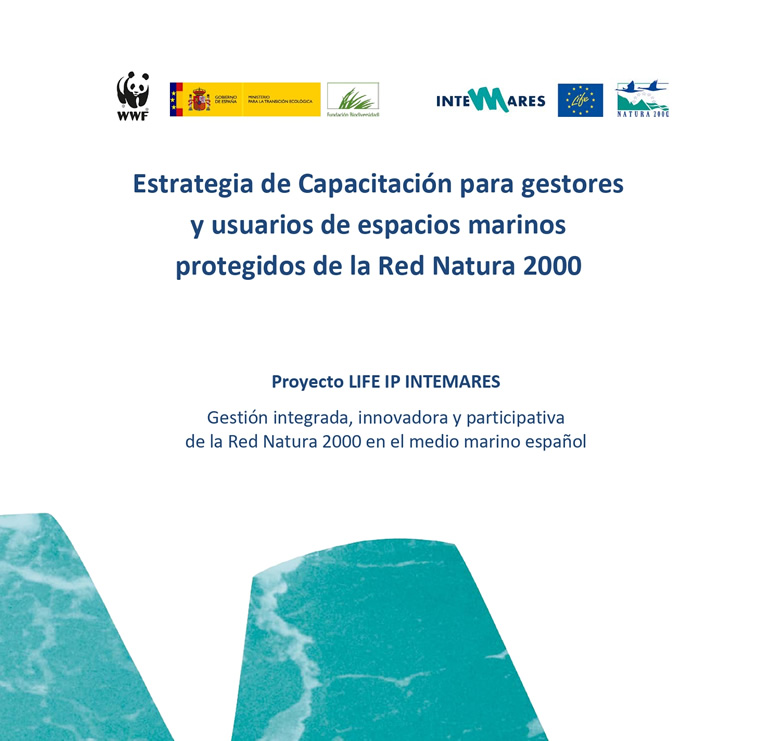Governance and training
Social participation is a crucial aspect of LIFE INTEMARES, as it is essential for the development of a new management model for protected marine areas.
Over 13,000 individuals from 925 organizations have participated in the project, which enhances governance in Natura 2000 Network sites and advances interadministrative coordination and social actor participation in marine environment management.
Various tools have been developed to foster participation, including governance and capacity building strategies. These strategies aim to promote more inclusive models for managing marine protected areas. Various participatory processes have been implemented to develop both strategies.



Governance strategy
285 participants from 80 different entities across all marine demarcations were involved. Additionally, it is accompanied by a guide to participatory processes. The guide aims to provide a framework, proposals, and tools that can be applied to any protected marine area. Its purpose is to inspire and guide a new approach to sea management.
Interadministrative coordination
Institutional relations have been established with other ministries, including the Ministry of Foreign Affairs, the European Union and Cooperation, as well as the Ministry of Transport, Mobility, and the Urban Agenda.
Furthermore, collaboration mechanisms for comanaging Natura 2000 Network marine protected areas have been reinforced with coastal autonomous communities and cities. In this context, over thirty meetings were held at both political and technical levels.
To enhance the conservation of the natural values that justify the declaration of these SACs, it is proposed to improve coordination among the administrations responsible for the various aspects affecting the marine Natura 2000 Network in Andalusia. This will ensure an efficient response in accordance with the objectives contained in the Framework for Priority Action (FPA) and the Marine Strategies. To achieve this goal, it is necessary to develop agreements and protocols that aim to reduce or eliminate any negative impacts on habitats and species.

Training strategy
The strategy was implemented through a participatory process that involved 290 participants.


Training sessions have been conducted for public administrations on managing the Natura 2000 Network and marine biodiversity within this framework. Over 3,400 individuals have been trained. Over 2,100 participants took part in training sessions for the Guardia Civil, the Navy, SASEMAR, and MITECO through the Directorate General for Coasts. This action was possible due to the collaboration established with the Ministries of the Interior and Defence. Training initiatives have been developed in collaboration with Salvamento Marítimo.
Furthermore, the Biodiversidad Foundation is creating a training programme for the public administrations in charge of managing the marine Natura 2000 Network. This initiative is backed by the Recovery, Transformation and Resilience Plan (PRTR), which is funded by the European Union’s NextGenerationEU.
This action aligns with the LIFE INTEMARES training strategy. The resources developed for the educational project ‘The school travels through the ocean with Natura and Marina’ include a didactic guide and an informative leaflet.
Furthermore, WWF Spain has launched multiple editions of a course on participatory processes and communication in the marine Natura 2000 Network to enhance governance. Additionally, CEPESCA has developed a course on marine governance specifically for the fishing sector.
Social Participation Committee
This consultative body advises on project actions, evaluates participation processes, and supports conflict resolution. It serves as a space for dialogue between project partners and participants. Three social participation committees have been held, which have facilitated collective work for the development of training and governance strategies.

Demonstrative experiences of governance:
Subscribe to the LIFE INTEMARES Newsletter